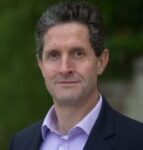
That may not be a popular approach right now – to stop fossil fuels from causing further global warming before we stop using fossil fuels. But it is going to be a major topic of debate in the UAE because, if we do not reach agreement on this, then 1.5 will most definitely be dead. We are going to generate more carbon dioxide than we can dump in the atmosphere and still limit warming anywhere near 1.5C. To pretend otherwise is, dare I say it, denial. So, as well as reducing the rate of fossil fuel use, we have to scale up safe and permanent carbon dioxide disposal.
We are going to generate more carbon dioxide than we can dump in the atmosphere and still limit warming anywhere near 1.5C. To pretend otherwise is, dare I say it, denial.
COP28 could be a pivotal moment – precisely because it is happening right in the heart of Oil and Gas Country. The trouble is, as so often happens in negotiations, the perfect (or seen as perfect) is the enemy of the good.
‘Just Stop Oil’ is easy to shout, but it cannot just happen, it cannot happen soon, and, crucially, it cannot happen soon justly.
Even if we, in the UK, could, ‘just’, phase out fossil fuels by 2050, stopping all shipping and aviation, completely transforming diet, heating and transport systems, it would be completely unfair to demand developing countries to do the same, particularly those who, unlike us, have yet to benefit from their fossil fuel reserves – so temperatures would continue to rise.
‘Just Stop Oil’ is easy to shout, but it cannot just happen, it cannot happen soon, and, crucially, it cannot happen soon justly
“Phase out ‘unabated’ fossil fuels” is less catchy than “phase out fossil fuels” but it could be done and, crucially, it could be done in time to keep 1.5 alive. But it is only useful if ‘abated’ fossil fuels is defined consistent with the physics of climate change and the goals of the Paris Agreement, which is why we are running a side-event on precisely this topic this evening.
For me, 100% abatement can only mean capturing, either at source for back out of the atmosphere, one tonne of carbon dioxide for every tonne generated by any continued fossil fuel use. And, crucially, it also means permanently disposing of it, which right now means back underground.
This does not mean to say that we should give up on phasing down the use of fossil fuels. Genuine abatement is both hard and expensive. Many current uses of fossil fuels make little sense, and make even less sense if we include the cost of 100% carbon dioxide disposal. So we must rapidly switch to renewable forms of energy and continue promoting other solutions like restoring and protecting nature. We need all of these approaches – but we also need to stop fossil fuels from causing global warming.
So we must rapidly switch to renewable forms of energy and continue promoting other solutions like restoring and protecting nature. We need all of these approaches – but we also need to stop fossil fuels from causing global warming
Abatement is going to be a key word to come out of COP28 – but, if we are to keep 1.5 alive, environmentalists must embrace it. Critics will say it is not possible, that carbon capture technology is not ready. They are wrong. It has been ready for years. It just suits the oil and gas industry rather well to say they need a bit more time (and subsidies) to develop it.
Meeting our climate goals is actually very simple. By mid-century, no one should still be buying, selling, or using anything that causes global warming. So, if you are in the business of doing just that, we need to see your plan to stop – by fixing the products, not just tiptoeing away from the whole mess. Which means safe and permanent disposal of all the carbon dioxide they generate.
Come to think of it, it is as easy to shout as “just stop oil”: when are we going to hear “fix our fuels” at COP28?
“The University of Oxford is a collegiate research university in Oxford, England. There is evidence of teaching as early as 1096, making it the oldest university in the English-speaking world and the world’s second-oldest university in continuous operation.”
Please visit the firm link to site



